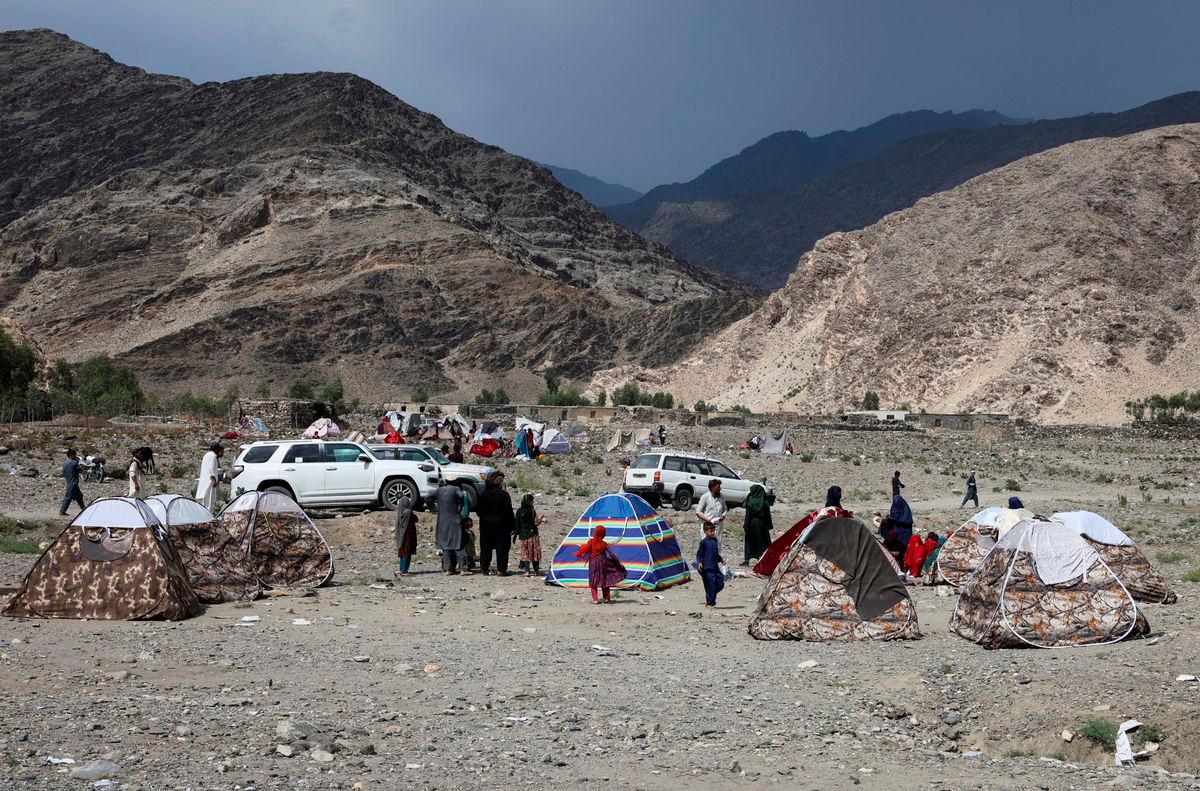MASUD: Deported from Pakistan in June, Nazar Shah was struggling to rebuild his life in Afghanistan when it was hit by a midnight earthquake. Six of his relatives were killed, his elderly stepmother was injured and his stone-and-mud home destroyed.
Four days on, the 40-year-old Shah and around 20 members of his family sleep under a tarpaulin erected by a river, in the path of possible floods, and experience daily aftershocks.
“We have lost our shelter,“ Shah, a farmer from Masud village in Afghanistan’s eastern province of Kunar that borders Pakistan, lamented as pots, bedding and a few bags of wheat lay stacked on wooden beds outside.
The poor, war-shattered country ruled by the Taliban has been hit by two earthquakes since midnight Sunday that have together killed more than 2,200 people, injured over 3,600, displaced many more and levelled thousands of houses.
A scarcity of resources, a decline in foreign aid since the 2021 Taliban takeover and a slow, meagre helping hand from the rest of the world have made rescue and relief a challenge.
The blow is particularly harsh for Afghans such as Shah, who is among hundreds of thousands deported from Pakistan and Iran this year.
Pakistan has expelled tens of thousands of Afghans - who had moved to the neighbouring country since the 1980s to escape the cycles of war and deprivation back home - under its
Illegal Foreigners Repatriation Plan launched in 2023.
Shah said he spent two years in Pakistan with his brothers, digging ditches and working security guard shifts to cover rent and bills. But deportation forced him to return to Masud, where his extended family was crowded into three small rooms.
“Life there was not too bad,“ Shah said when Reuters spoke to him on Thursday. “Even if we had to eat less and buy food on credit, at least we managed.”
When the quake first struck, he rushed out with his children and livestock but forgot his elderly mother in the chaos.
“When I realised, she had already made it some distance, but then a rock fell from the mountain and struck her leg,“ he said. “It was pitch dark. You couldn’t see your own hands.”
Double crisis
Getting relief to victims such as Shah and his family has been slow, aid groups say, with mountain roads blocked by landslides, and funds scarce.
The crisis is compounded by the return of Afghans expelled from Iran and Pakistan, who are streaming back into border provinces such as Kunar with little to fall back on.
Aid workers say the combination of deportations and disasters is stretching an already fragile relief effort to breaking point.
When 30-year-old volunteer doctor Hazrat Gul finally reached Shah's family carrying bandages and medicines from his private pharmacy, his mother Rad Bibi was lying on a latticed rope cot with a wound untreated for four days.
“These people are still suffering,“ said the doctor, who rushed from neighbouring Nangarhar province after burying six of his own relatives killed in the disaster. “If it rains heavily, God only knows what will happen. Tents cannot withstand storms.”
Driver Jamal Naser, 43, faced a similar fate.
He was in the Pakistani capital Islamabad when the tremors hit, and hurried back to Masud leaving his family behind, only to find his house in ruins. Having already been served a deportation notice by Pakistani authorities and a deadline to return to Afghanistan looming, he said he is lost.
“With winter approaching, my biggest concern is what I will do,“ he said -REUTERS









